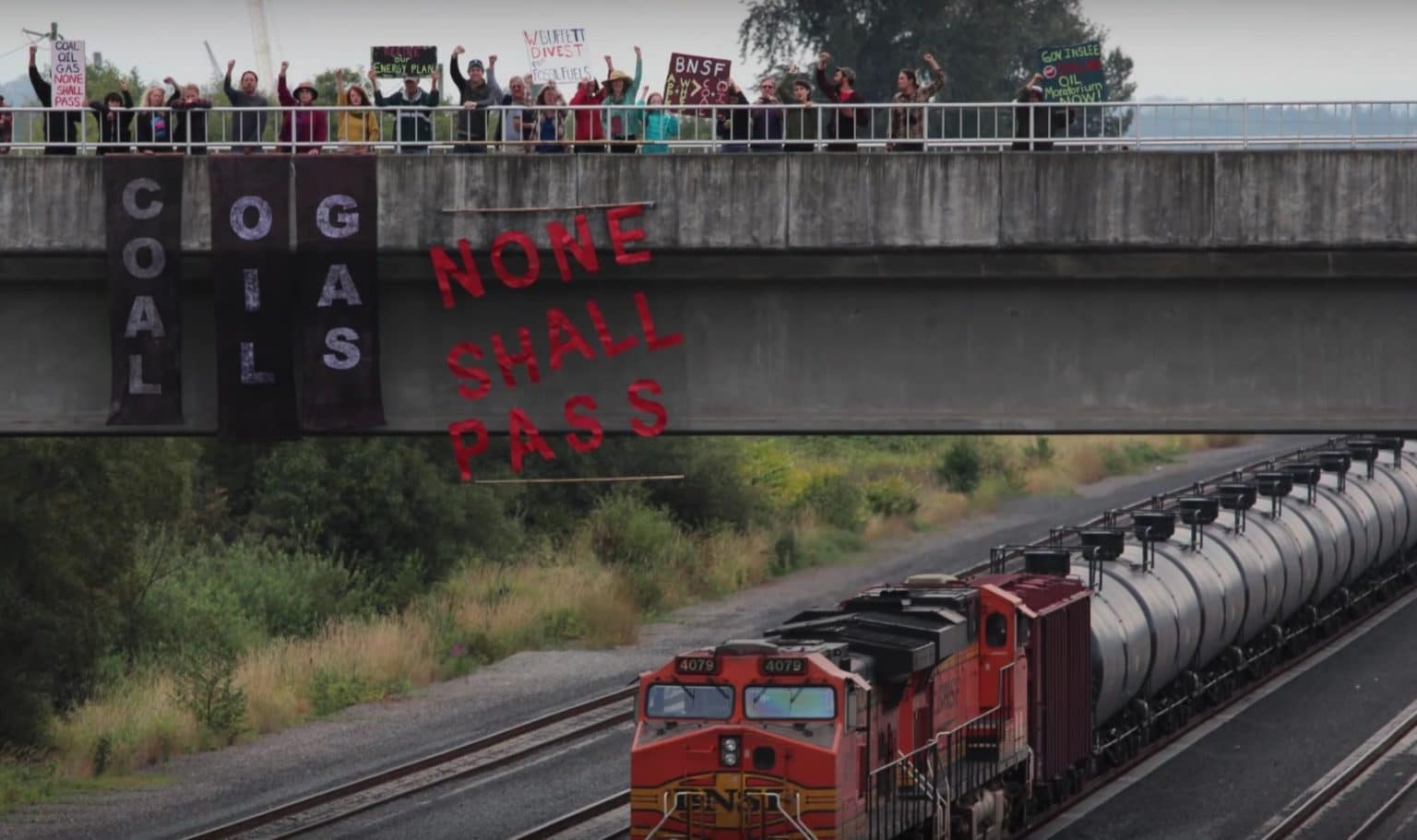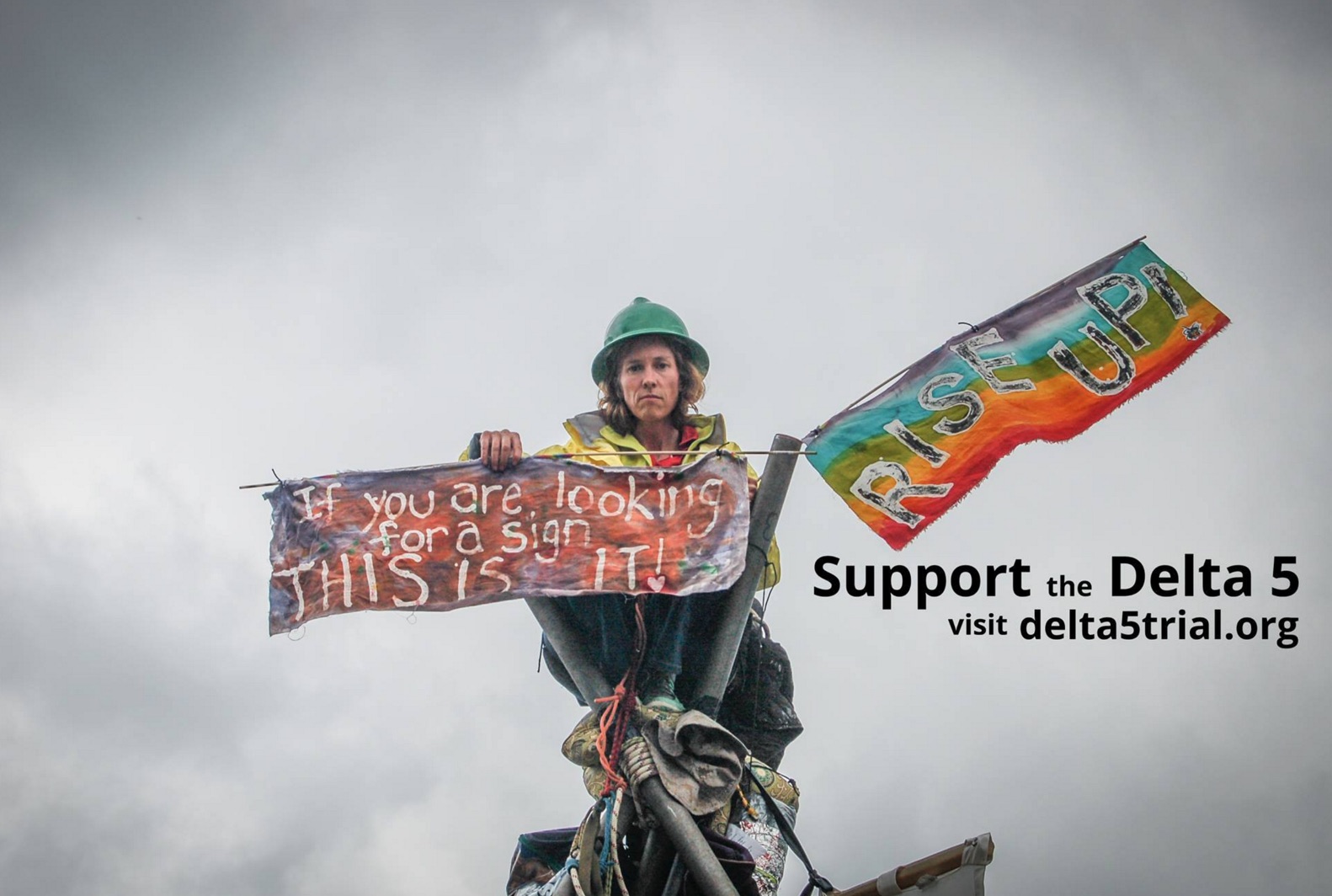In September 2014, five individuals — now known as the Delta 5 — blockaded a train transporting Bakken shale oil at the Delta rail yard in Everett, Washington. This action was taken to oppose the known risks of the explosive Bakken oil and the risks that fossil fuels pose to the climate.
Delta 5 member Abby Brockway explained what led her to take this action.
“I met a lot of politicians along the way but each individual said ‘I hear what you are saying but there is nothing that I can do. I feel powerless as your representative,’” Brockway recounted. “I can’t accept that.”
After stopping the train for eight hours, the five protesters were removed and arrested and charged with Criminal Trespass and Blocking or Delaying a Train. The Delta 5 plan to use the “necessity defense” to defend their actions.
The necessity defense essentially argues that violation of the law by stopping the train is justified because it was done to “avoid a harm which social policy deems greater than the harm resulting from violation of law.”
In this case the harms avoided are the risks of climate change and exploding trains of Bakken oil.
The necessity defense has never been used in a jury trial relating to actions taken to stop climate change.
The trial is set to begin tomorrow, January 11th.
On January 6, the judge issued a ten page order denying the defendants the use of the necessity defense. In that order the judge acknowledged the reality of harm from climate change but denied the necessity defense with the following explanation:
“General harms by global warming are obvious – and potentially catastrophic – if government and individuals fail to act. But such generalized harm – even though it is extreme, cannot be legally cognizable because it is impossible to quantify the societal benefits of defendants’ illegal acts as they relate to the harm averted. Therefore, necessity is unavailable as a defense.”
In the order the judge gave examples of where the necessity defense was clear, including a stranded mountain climber breaking into someone’s home to survive or a prisoner escaping a burning jail cell to save his life. He also noted that in a previous case protestors had blocked a train thought to be carrying nuclear warheads, the necessity defense was denied.
Lawyers for the Delta 5 quickly filed a Motion to Reconsider, and to the surprise of many involved, the judge reversed his decision and is now allowing the necessity defense. So on January 11th, for the first time, the necessity defense will be used in court to defend civil disobedience actions related to climate change.
With the judge allowing the necessity defense the jury will hear from expert witnesses including a co-author of the UN’s Intergovernmental Panel on Climate Change (IPCC) report and a rail safety expert, to convince the jury that the threat posed by climate change justified their acts of civil disobedience.
So does climate change pose the same risks to people that a burning jail cell poses to a prisoner? This week – for the first time – a jury will be asked to consider that question.
Abby Brockway blockading an oil train.
Subscribe to our newsletter
Stay up to date with DeSmog news and alerts







